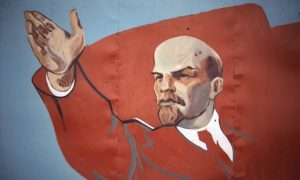Tariq Ali, military historian and himself a prominent firebrand for the left, has published an absorbing article on Vladimir Lenin’s literary tastes. He loved the classics. He read Ovid, Virgil, Horace, and Juvenal deeply. But Ali states that it his love for the gold might adversely have effected his politics; that is, old was not gold in this case, but that might also have to do with its being concentrated in the hands of a few.
Lenin was also hostile to any notion of a proletarian literature and art, insisting that the peaks of bourgeois culture (and its more ancient predecessors) could not be transcended bymechanical and dead formulae advanced in a country where the level of culture, in the broadest sense, was far too low. Shortcuts in this field would never work, something that was proved conclusively by the excremental socialist realism introduced in the bad years that followed Lenins death. Creativity was numbed. The leap from the kingdom of necessity to the kingdom of freedom, where the lives ofall would be shaped by reason, was never made in the Soviet Union or, for that matter, anywhere else.
It might seem surprising that given Ali’s closing remarks he felt the revolution was necessary. Surprising, but understandable; something perhaps we can sympathize with as citizens who have had a rude recent encounter with the ‘lesser of two evils’ principle, especially since we ended up with the worse of two evils. What one reads is less important than how one reads. It is still another matter whether one is sufficiently mature to practice in life the lessons on learns in literature. As students of the Core Curriculum, I take it one of these, then, we know and value very well: sympathy.
Scholars of the Core, read his full post at The Guardian

